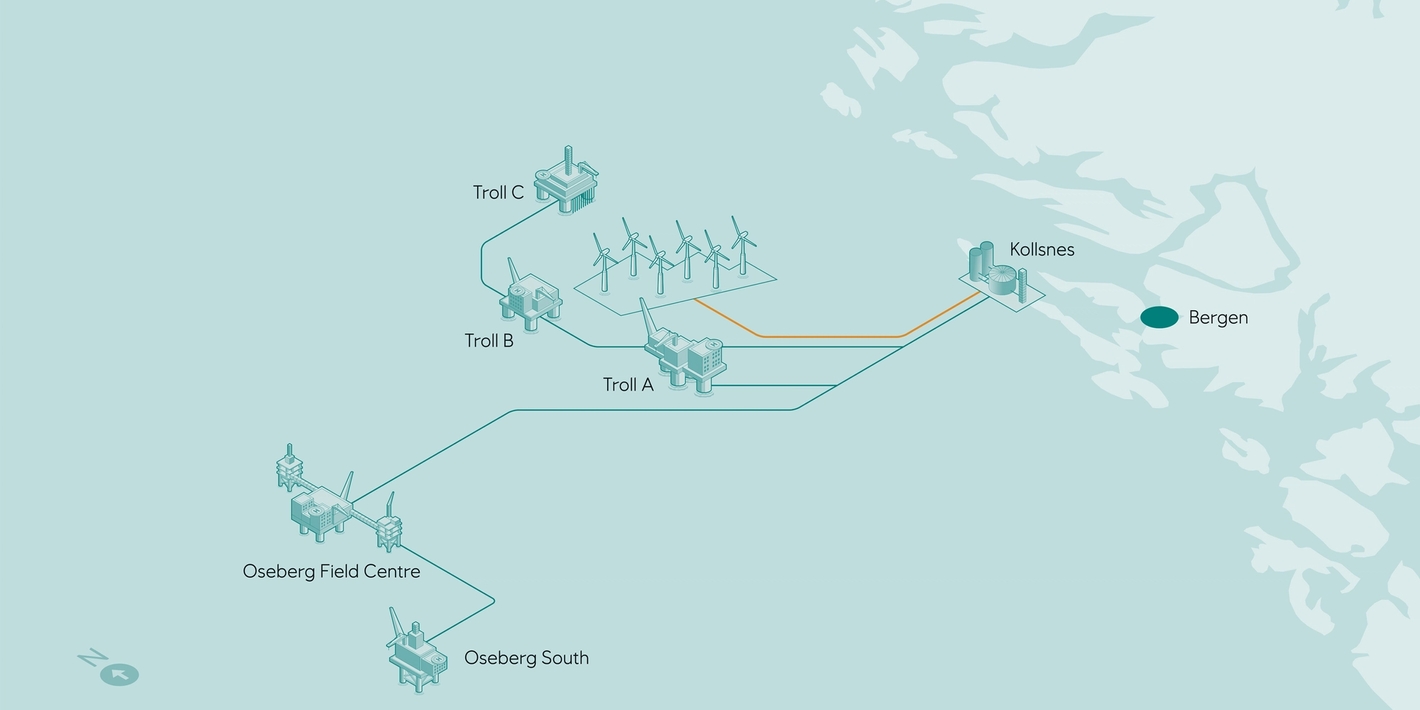Equinor put Trollvind on hold

Equinor will postpone a further development of the Trollvind offshore wind initiative indefinitely. This decision is based on several challenges facing the project, including technology availability, rising cost and a strained timetable to deliver on the original concept. The authorities have been informed about the decision.
Equinor has previously announced reduced activity in the project due to technical, regulatory, and commercial challenges to the project.

"We appreciate all the positive response towards Trollvind from politicians, suppliers, and authorities. Trollvind was a bold industrial plan to solve pressing issues concerning electrification of oil and gas installations, bringing much needed power to the Bergen-area, while accelerating floating offshore wind power in Norway. Unfortunately, we no longer see a way forward to deliver on our original concept of having an operational wind farm well before 2030,” says Siri Espedal Kindem, vice president of renewables Norway.
Behind the decision of putting Trollvind on hold are several challenges facing the broader offshore wind industry. Rising costs have challenged the original concept that Trollvind would not require any financial support and it is no longer a commercially sustainable project.
Furthermore, changes in the technical solutions due to preferred technology not being available has made the concept less viable. Finally, time was always going to be a challenge with the proposed timeline, and despite all the big effort it has not been possible to mature Trollvind to the level needed to go forward at this time.
As Equinor has taken this decision the company is also looking forward. Our ambition is still to lead in building an offshore wind industry in Norway. The knowledge and learning from working on Trollvind will be applied to other projects as Equinor remain committed to developing floating offshore wind power at Utsira Nord and outside Norway.
Latest news

Ex. dividend third quarter 2025
The shares in Equinor ASA will be traded on the Oslo Stock Exchange (OSE) and New York Stock Exchange (NYSE) exclusive the third quarter 2025 cash dividend as detailed below.

Buy-back of shares to share programmes for employees
Equinor ASA has on 4 February 2026 engaged a third party to conduct repurchases of the company's shares to be used in the share-based incentive plans for employees and management for the period from 13 February 2026 until 15 January 2027.

Notifiable trading
A primary insider in Equinor ASA has sold shares in Equinor ASA: